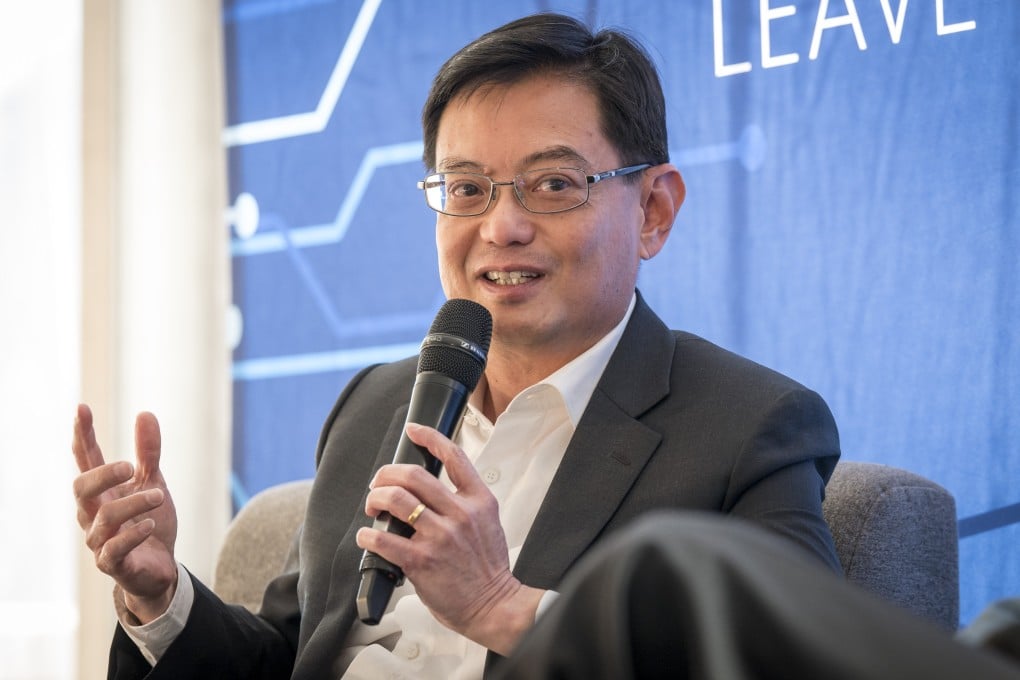Advertisement
Heng Swee Keat becomes Singapore’s sole Deputy Prime Minister, paving the way for him to succeed Lee Hsien Loong
- Heng, 57, will be the sole No. 2 leader after current Prime Minister Lee Hsien Loong, a departure from convention as there are usually two DPMs
- The cabinet reshuffle announcement also said Lee would move his two current deputies, Teo Chee Hean and Tharman Shanmugaratnam, to senior minister roles
Reading Time:3 minutes
Why you can trust SCMP

Singapore’s Finance Minister Heng Swee Keat on Tuesday was promoted to become the country’s sole Deputy Prime Minister, moving him closer to succeeding Prime Minister Lee Hsien Loong as the Lion City’s next leader.
Lee, 67, moved his two current deputies, Teo Chee Hean and Tharman Shanmugaratnam, to senior minister roles.
Heng, 57, will be the sole Deputy Prime Minister and will also continue as Finance Minister. The changes will take effect next Wednesday.
Advertisement
While Heng’s elevation had been expected, few observers had guessed Lee would part from convention by making the finance minister his sole deputy.
Ruled by Lee’s People’s Action Party (PAP) for the last six decades, Singapore has traditionally had two deputy prime ministers.
Advertisement
Advertisement
Select Voice
Select Speed
1.00x